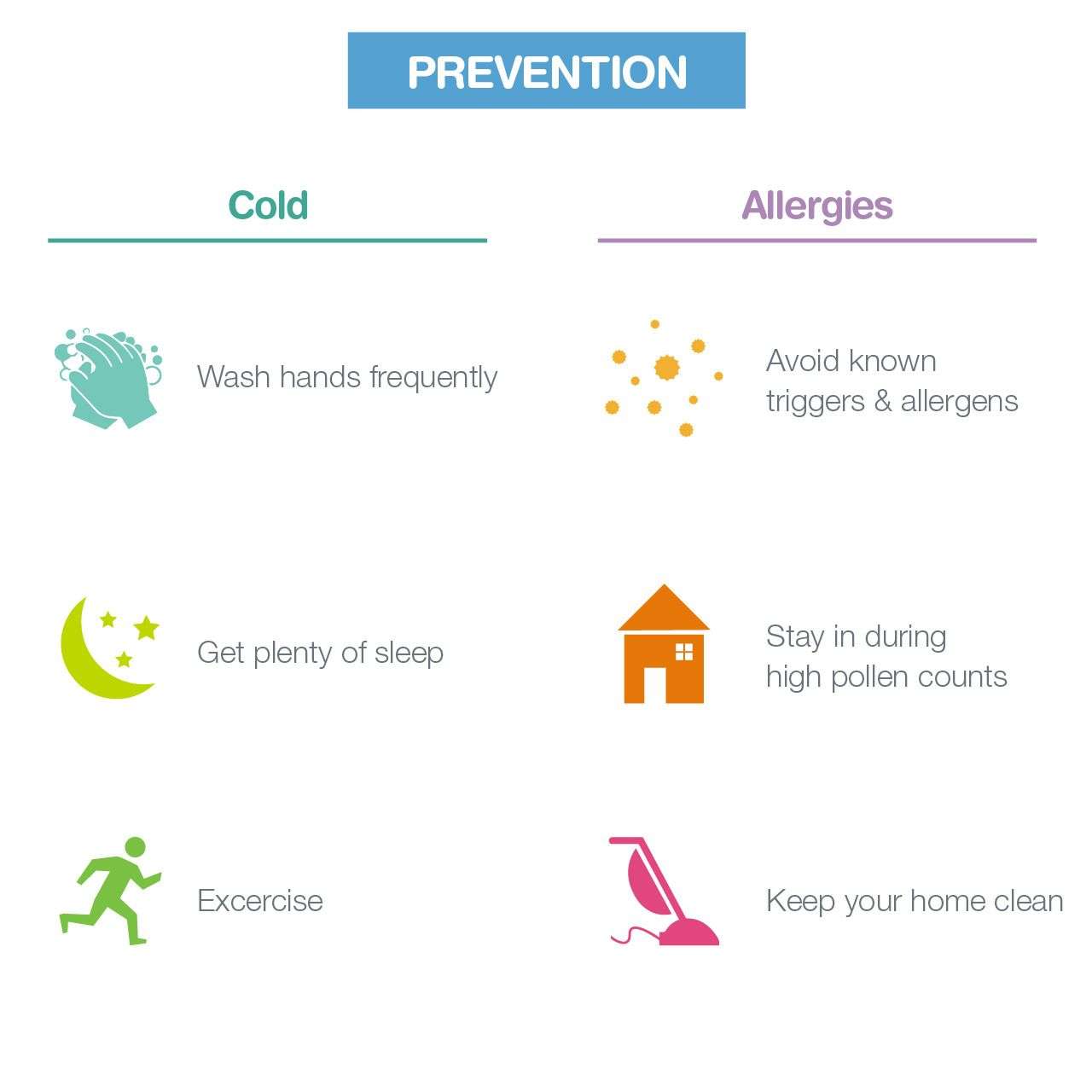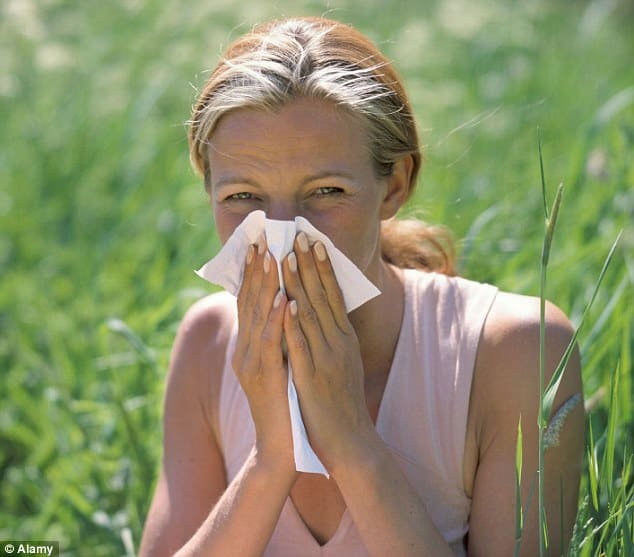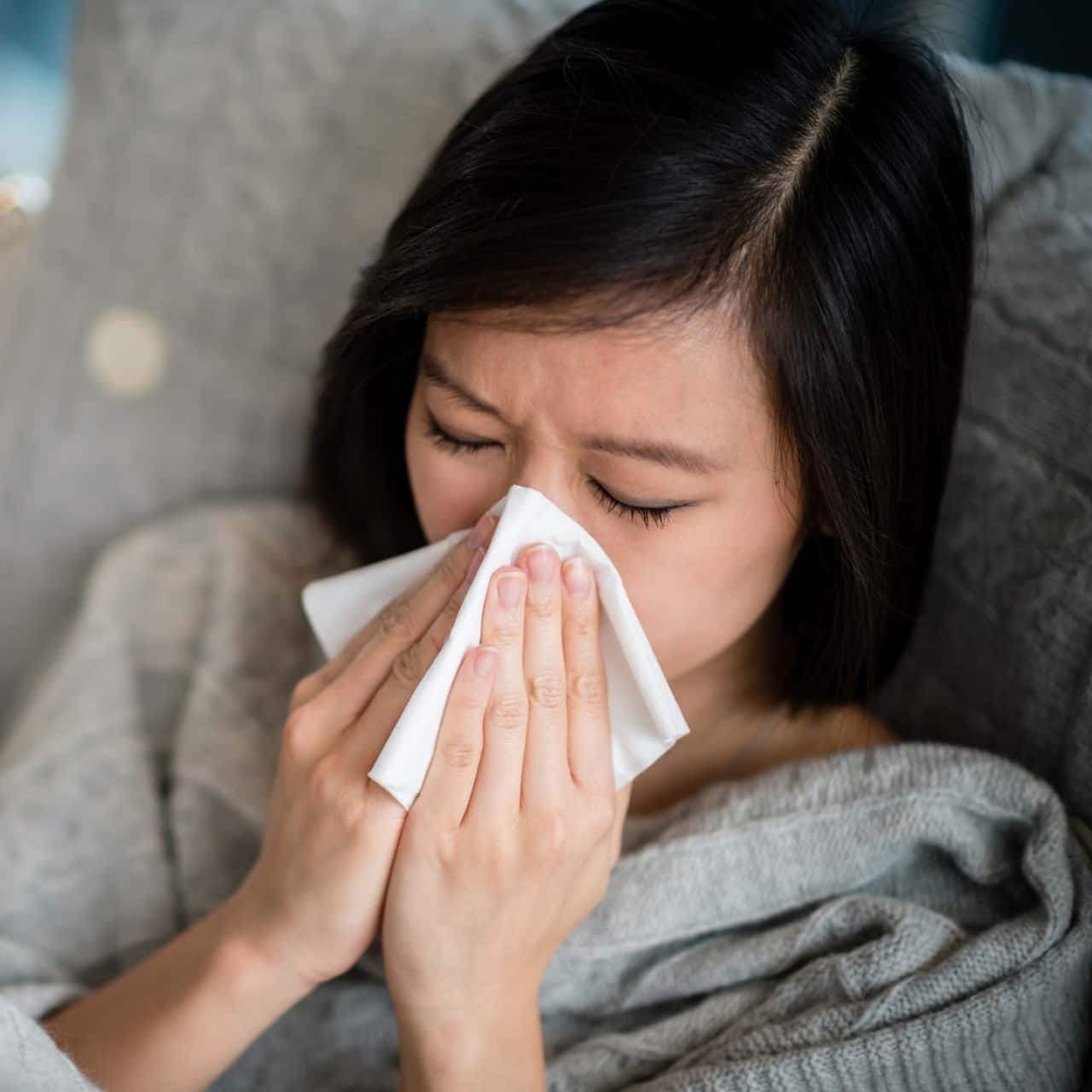What Causes Winter Allergies
There is often not one particular answer. Winter allergies tend to flare up when we spend more time inside. What triggers one person might not pose a problem for another.
There are several common allergens found inside our homes, no matter how often you clean. Common indoor allergy triggers include:
- Cockroaches: feces and shells left behind
- Rodents seeking shelter from cold weather bring dander, droppings, urine and parasites that may trigger allergy symptoms
Constant exposure to these allergens causes your body to identify them as invaders. An allergy is an exaggerated response to a substance and is unique to each person. An allergy to dust mites, for instance, tells the immune system to produce antibodies that attach to cellsin the mucous membranes of the eyes, nose, and lungs. As inflammation occurs, there is more mucus, making it harder for the body to rid itself of allergens.
Can You Have Allergies In The Winter
The short answer is “yes.” Now hereâs the long answer.
When most people talk about âallergy season,â they are referring to the spring when trees and flowers are pollenating. Pollen is just one allergen, even though it tends to get the most attention. Because the increase in pollenâand thus, allergy symptomsâcorresponds to a specific time of year, it can be tempting to assume that all allergies happen around the same time.
But they donât. In fact, there are hundreds of allergens, including animals and dust mites, that arenât tied to a season or temperature. Thereâs even a name for this category: year-round allergies. All those things are around pretty much all the time, including the winter. So even though pollen isnât usually in the air when colder temperatures hit, there are other things that could trigger allergic symptoms.
Winter Allergy Symptoms
While thereâs no such thing as an allergy to winter, year-round allergies can seem to increase when people start spending more time indoors and in close quarters with furry critters . Common symptoms for allergies to these triggers include:1
- Coughing, chest tightness, shortness of breath, wheezing
- Watery, red, or itchy eyes
- Skin rash or hives
Do those symptoms sound familiar? They are very similar to cold and flu symptoms, which makes it even harder to determine whether youâre allergic to something or just sick with whatever crud is making the rounds.
How Can I Strengthen My Immune System Against Allergies
For one, if you exercise and eat right, you’ll be better able to withstand the effects of allergies compared to if you’re overweight and already struggling to breathe. Second, certain foods can reduce seasonal allergy symptoms such as fatty fish, flaxseed, broccoli, oranges, peppers and strawberries.
Also Check: Are Pine Nuts Nuts Allergy
Allergy Specialists Can Get Personal
Pediatricians may know the basics about allergies and asthma, but there can be some complexities in allergies and asthma that they may not be experts in. And that’s why he likes being an allergist to figure out each of his patient’s individual needs. He said our family was an example of that because all 5 of us needed different allergy and asthma treatments! He said it could be hard to figure out the proper medication for each person.
Is It Normal To Have Allergies All Year

Allergies are very common, and many people who have allergies have some degree of symptoms for much of the year. But is it normal to have allergies all year? It might be more accurate to say that its not uncommon to have allergies all year long.
But the fact that many people have year-long allergies doesnt mean you have to simply accept them. If allergies interfere with your enjoyment of life, you should talk with your doctor about them, since there are ways to treat both seasonal and perennial allergies.
Read Also: How Do You Treat Allergies In Dogs
Why Do I Have Year
Its summertime, that time of year when everyone is coughing and sneezing away from the high pollen count. But this isnt anything new for you its a year-round battle with allergies. And youre not alone. Over 40 million people suffer from allergies and the majority of those patients suffer from year-round allergies, according to a survey reported by CBS News. It could be that you are reacting to a different allergen each season, or perhaps the source of your allergies is mold.
Eat More Fruits And Vegetables
Some of the fruits and vegetables like grapes, apples, tomatoes and even oranges have been found to help keep the symptoms of allergies at bay and even helps with the condition altogether.
The researchers are still trying to establish a better link between the possible reasons why they work. It is best suggested to consume at least 1 fruit and 1 vegetable on a daily basis.
Also Check: Can You Grow Out Of Allergies
What Is Allergic Rhinitis In Children
Rhinitis is a reaction that happens in the eyes, nose, and throat when allergens in the air trigger the release of histamine in the body. Histamine causes itching, swelling, and fluid to build up in the fragile linings of nasal passages, sinuses, and eyelids.
Allergic rhinitis can happen on a seasonal basis or year-round. Year-round allergic rhinitis happens more often in younger children. There is usually a family history of allergic rhinitis.
Talking About The Weather
Whats the spring allergy outlook where you live? Will sudden temperature changes trigger an asthma flare? Weather can play a key role in asthma and allergy symptoms and flu transmission. We partnered with Weather Trends International to provide weather forecasting and analysis for people with asthma and allergies.
Recommended Reading: What Symptoms Can Allergies Cause
What Causes Allergies In Winter And How Do I Manage My Symptoms
There is no complete cure for respiratory allergies, but there are things you can do to help manage symptoms, regardless of the time of year. This includes something called exposure reduction, which is exactly what it sounds likeâreducing exposure to known allergic triggers. Here are the most common year-round allergens along with exposure reduction tips:2
â¯Animal danderâ¯
- Confine the pet to a room with a polished floor and furniture you can wipe down.
- Restrict the animal from the bedroom and keep him or her off the furniture.
- Use high-efficiency particulate air filters and vacuum cleaners.
- Wash your pet weekly in warm water and soap.
- Consider rehoming the pet or keeping it outdoors.
Cockroaches
- Keep food and garbage in closed containers take out the garbage regularly.
- Donât store paper bags, newspapers, or cardboard boxes in your home.
- Place bait traps or call a professional exterminator to eliminate cockroaches.
- Seal plumbing openings, cracks, and crevices.⯠â¯
Dust mites
- Encase mattresses, pillows, and box springs in allergen-proof coverings.
- Wash bedding weekly in water 130 F or more.
- Vacuum and reduce clutter in the home.
- Wear an appropriate mask while cleaning and avoid the area for 20 minutes thereafter.
- Change furnace and air conditioner filters.
- Use a dehumidifier to reduce the humidity in your home.
Indoor mold
- Clean furnace filters, the refrigerator, and the dehumidifier .
- Dry clothes thoroughly before storing.
Rodents
Visit An Allergy Specialist
According to Dr. Ogden, one of the biggest misconceptions about allergies is that theyre no big deal and will pass in a few days. More than ever before, seasonal allergies can be severe and last for weeks and months, she says, and they can include atypical allergy symptoms too, such as headache, fatigue, and brain fog. This can hugely impact quality of life, work, and school life.
If you have persistent symptoms, this is a sign you may be developing year-round allergies, in which case, Dr. Ogden recommends scheduling an appointment with an specialist as soon as possible. Early identification and treatment are the best form of dealing with year-round allergy because it will help you to minimize exposure and symptoms, Dr. Ogden says. Additionally, under-treated allergies can lead to more severe medical conditions like acute and chronic sinusitis, bronchitis, asthma exacerbations, and ocular conjunctivitis .
Recommended Reading: Is It Allergy Season In Arizona
Indoor Allergy Testing And Management
To properly manage and treat year-round allergies, itâs important to understand exactly what is causing symptoms. The first step is talking to a healthcare provider about allergy testing options.
Healthcare providers are encouraged to use test results and a personâs medical history to devise a comprehensive, yet targeted, environmental remediation strategy limiting exposure to known allergens. The treatment of year-round allergies includes the use of three different types of intervention:3,5
When Is Allergy Season And How Long Do Seasonal Allergies Last

Actually, there isnt just one allergy season. Instead, there are certain times during the year when allergy symptoms may be more severe, depending on what youre allergic to.
As for when allergy seasons start and stop, it depends on where you live. If you have indoor allergies, you could experience allergy symptoms year-round including in the winter. But generally, there are three seasons when outdoor allergens trigger annoying symptoms: Spring, summer and fall.
Recommended Reading: Will Child Outgrow Egg Allergy
Common Causes Of Year
If you experience allergies, you know its absolutely no fun! Year-round allergies, also known as perennial allergies, occur when you come into contact with something youre allergic to no matter what the season is.
While dealing with symptoms of year-round allergies can be a pain, it helps to know common causes and treatments. Also know that you arent alone approximately 50 million Americans experience allergy symptoms each year.
What Are Year Round Allergies
Much like any other general definition of allergies, year round allergies, otherwise known as perennial allergies are caused because of the exposure to the airborne substances and the triggers that many often tend to struggle with.
It is important to ensure that you do keep an eye out on the signs and symptoms and even get it checked from the doctor if the condition persists and gets worse over the course of time.
If you come to talk about year around allergies, they are the type which are persistent throughout the year and impose signs and symptoms of allergic reactions the entire year round.
Don’t Miss: How To Treat Cosmetic Allergy On Face
Itchy Nose And Seasonal Allergies
If a man thinks about his nose at all, he’s likely to think of it as a simple organ of smell. It’s true, of course, that the nose is responsible for the sense of smell, but smell means much more than the ability to enjoy pleasing scents. Because smell contributes importantly to taste, it plays a central role in maintaining good nutrition. Smell can also warn us of dangers ranging from toxic fumes and smoky fires to spoiled food.
Allergic rhinitis can blunt the sense of smell, and it can also interfere with the other important functions of the nose. When your nasal passages are functioning normally, about five to eight quarts of air pass through them each minute. Your nose has the job of conditioning that air before it reaches the sensitive tissue of your lungs. Your nose adds moisture, but to do that, it must produce large amounts of mucus. It also warms the air, with help from a large network of blood vessels. Finally, the nose traps small particles, keeping them out of the lungs.
If you have allergies and your nose traps pollen or other particles to which you are sensitive, an inflammatory process starts right in your nose. Immune system mast cells in the nasal tissue release chemicals such as histamine and leukotrienes. Blood vessels swell, causing nasal congestion, and mucus production soars, creating a runny nose. Just like that, you’ve developed some of the symptoms of allergic rhinitis and some of your nose’s normal functions have been compromised.
Who Is At Risk For Allergic Rhinitis
Children with asthma are at a higher risk for rhinitis. Allergic rhinitis is a common problem that may be linked to asthma. However, this link is not fully understood. Experts think that since rhinitis makes it hard to breathe through the nose, it is harder for the nose to work normally. Breathing through the mouth does not warm, filter, or humidify the air before it enters the lungs. This can make asthma symptoms worse.
Controlling asthma may help control allergic rhinitis in some children.
Don’t Miss: What Is Causing My Allergies To Be So Bad
What’s Causing Allergies Now
The most common culprit for fall allergies is ragweed, a plant that grows wild almost everywhere, but especially on the East Coast and in the Midwest. Ragweed blooms and releases pollen from August to November. In many areas of the country, ragweed pollen levels are highest in early to mid-September.
What Are Common Winter Allergies
Dust is everywhere. Dust contains skin flakes and hair from people and pets, tracked-in dirt, clothing fibers, crumbs, and insect parts. Carpets, furniture, window treatments, and bedding are dust catchers. Filters in your HVAC ducts get dirty or clogged, poorly sealed windows allow pollen and dirt in, and vacuuming releases dust into the air.
Dust mites feed on the very things that make up dust, such as skin cells, insect parts and animal dander. They are present in almost every home, lurking in bedding, furniture, and carpets. Their feces contain digestive enzymes that allow them to get energy from their waste, but this enzyme can be a cocktail of allergens for humans.
Mold is also lurking indoors. It thrives in dark, moist places like bathrooms, basements and under sinks. Mold spores float through the air and are found even if conditions arent favorable. In the right conditions, they will grow on fabric, paper, wood, glass, and plastic.
- Extra moisturizing use heavy lotion/oil and wear socks overnight
- Bathe with cooler water avoid stripping skin of natural oils
- Eat healthy fats may improve your skins moisture barrier
- Drink plenty of water for supple skin
- Use a humidifier if dry air is a trigger
- Gently exfoliate feet regularly to rid them of dead skin cells
- Avoid scratching or peeling flaky skin
- Wear comfortable shoes allow feet to breathe
Recommended Reading: How To Soothe Throat From Allergies
What Is Allergic Rhinitis
Allergic rhinitis is the medical term for hay fever or nasal allergies. By definition, allergic rhinitis is swelling of the nasal passages caused by allergens. Its important to note that while many people refer to it as hay fever, it is not caused by hay. Nor does is cause a fever. Allergic rhinitis is triggered by having allergies. You have an allergy when your body overreacts to things that dont cause problems for most people. These things are called allergens.
There are 2 forms of allergic rhinitis:
- Seasonal :Caused by an allergy to pollen and/or mold spores in the air. Pollen is the fine powder that comes from flowering plants. It can be carried through the air and is easily inhaled. Symptoms are seasonal and usually occur in spring, late summer, and fall. This is the most common form of allergy.
- Perennial:Caused by other allergens such as dust mites, pet hair or dander, or mold. Symptoms occur year-round.
How Is Allergic Rhinitis Treated

Several allergy medications can improve symptoms and help you live with hay fever. These treatments come in many forms, including liquids, pills, eye drops, nasal sprays and injections. Talk to your provider before taking any medication, especially if youre pregnant or have other health concerns. Your provider may suggest:
Antihistamines: Antihistamine medications are available with a prescription or over the counter. They work by blocking the histamine that your body releases during an allergic response. Antihistamines come as pills, liquids, eye drops, nasal sprays and inhalers. They include:
- Levocetirizine .
Antihistamines can cause drowsiness. Avoid alcohol when taking antihistamines, especially if youre going to drive.
These medications relieve congestion in the nose and sinuses. You can take decongestants by mouth or use a nasal spray. They include:
- Afrin® nasal spray.
- Phenylephrine nasal spray .
-
Pseudoephedrine .
Corticosteroid nasal sprays: These sprays and inhalers reduce inflammation and relieve symptoms of hay fever. The most common nasal sprays are Flonase®, Nasacort® and Rhinocort®. Side effects include headaches, nasal irritation, nosebleeds and cough.
Your provider might recommend immunotherapy in the form of a pill that you place under your tongue.
Don’t Miss: How Long Does An Allergy Skin Test Take
What Are Winter Allergies
Many people think of allergies as seasonal, caused by grass, tree and ragweed pollen. Truth is, seasonal allergies can occur nearly year-round as trees release pollen in the spring, grasses in the summertime, and weeds go to work in the fall. And if you live in a warm climate, you might experience allergies in winter because some plants may not go dormant. For example, people who live in the Southwestern United States Texas, Oklahoma, Arizona, New Mexico and Missouri may experience whats called cedar fever if exposed to the Ashe Juniper tree during winter months.
If tree, grass and weed exposure trigger allergies in spring, summer and fall, then what could trigger allergy symptoms in wintertime? Winter allergies are less likely to be caused by outdoor triggers instead, they are triggered by exposure to allergens inside your home or office.

